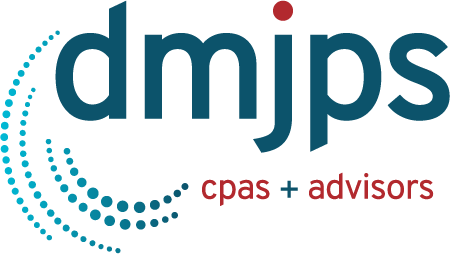In September 2024, Hurricane Helene brought unimaginable destruction to our neighbors, friends, and clients in western North Carolina, South Carolina, and eastern Tennessee. In the past month alone, our state experienced storm damage from Hurricane Debby in the east and Hurricane Helene in the west. As a state-wide CPA firm that stretches from our beautiful mountains to our coast, we have been through numerous hurricanes and storms over the years and, are eager to help our communities as they navigate the developing tax relief provisions.
In August 2024, the IRS announced tax filing relief for Hurricane Debby (code EM-3608) for affected areas in eastern and central North Carolina. Taxpayers in certain parts of South Carolina, Georgia, and Florida are also covered by this relief. The deadline for filing certain returns and making certain tax payments was extended until February 3, 2025. Hurricane Debby resulted in the affected areas being designated a federally declared disaster, allowing losses to be claimed as itemized deductions subject to certain limits.
FEMA has designated Hurricane Helene a Major Disaster (code DR-4827), which allows significant tax relief for affected areas. All of North Carolina, South Carolina, Alabama, Georgia, and parts of Tennessee, Virginia, and Florida fall under this disaster. Significant tax relief provisions are available for areas in a major disaster area. This narrative will focus on the major disaster area provisions.
On December 12, 2024, President Biden signed the Federal Disaster Relief Act of 2023, which now classifies losses from Tropical Cyclone 8 and Hurricanes Debby, Helene, and Milton as “qualified disasters.” This act will allow personal casualty loss deductions over $500 even if taxpayers take the standard deduction and will not subject these applicable losses to the 10% of the adjusted gross income floor.
Recovery from a disaster such as Hurricane Helene will be a difficult journey for those who have experienced losses. While some damages may be covered in part by insurance and FEMA assistance, in many cases, damages from floods and water are only covered if there is an existing flood policy in place at the time of the disaster. Damages from noncovered flood damages may be substantial and result in significant tax losses. Determining actual losses and reimbursable amounts will be a time-consuming process dealing with insurance companies adjusters and FEMA. Federal and state income tax returns to claim casualty losses can only be filed after the uninsured losses have been determined.
Tax Filing Relief
The declaration permits the IRS to postpone certain tax-filing and tax-payment deadlines for taxpayers who reside or have a business in the disaster area. For instance, certain deadlines falling on or after September 23, 2024, and before May 1, 2025, are granted additional time to file through May 1, 2025. As a result, affected individuals and businesses will have until May 1, 2025, to file returns and pay any taxes that were originally due during this period.
Affected taxpayers with returns and payments with due dates postponed until Feb. 3, 2025, due to Hurricane Debby in North Carolina (NC-2024-07) will also now have until May 1, 2025, to file and/or pay. The IRS provided this extended relief on October 1, 2024, in Announcement 2024-253. Hurricane Debby relief was for selected parts of NC, while the new Hurricane Helene relief supersedes the Debby relief, and covers the entire state of NC.
The IRS gives affected taxpayers until May 1, 2025, to file most tax returns:
- Individual returns
- Corporate and S corporation return
- Estate and trust income tax returns
- Partnership returns
- Estate, gift, and generation-skipping transfer tax returns
- Annual information returns of tax-exempt organizations
- Employment and certain excise tax returns, that have either an original or extended due date occurring on or after September 26, 2024, and before May 1, 2025, are granted additional time to file through May 1, 2025.
Affected taxpayers that have an estimated income tax payment originally due on or after September 26, 2024, are postponed through May 1, 2025, will not be subject to penalties for failure to pay estimated tax installments as long as such payments are paid on or before May 1, 2025.
The May 1, 2025, deadline also applies to any payment normally due during this period, including the quarterly estimated tax payments due on January 15 and April 15, 2025. The May 1, 2025, deadline also applies to the quarterly payroll and excise tax returns normally due on October 31, 2024, and January 31, and April 30, 2025. In addition, penalties on payroll and excise tax deposits due on or after September 25, 2024, and before October 10, 2024, will be abated as long as the tax deposits are made by October 10, 2024.
At present, the extended deadline does not include some filings, including 2024 W-2s and 1099s.
As of this writing, we do not have complete information about other filing relief, such as state unemployment filings, and US Treasury reports such as beneficial ownership interest and foreign bank account reports. Also, multi-state filers may not receive equivalent relief in other states.
Personal Casualty Losses
Personal casualty losses are allowed as an income tax deduction for areas that have been designated as a federally-declared disaster areas. Only disasters with a DR or EM code designation are eligible for this special casualty loss deduction. Losses in major disaster areas are “qualified disaster losses” that are fully deductible in excess of $500 on IRS Form 4864. Major disaster-qualified losses are allowed in addition to any itemized deductions and in addition to the standard deduction for taxpayers who do not itemize. Losses from Tropical Cyclone 8, Hurricanes Debby, Helene, and Milton have now been classified as “qualified disaster losses”.
Taxpayers can make an election to claim allowed casualty losses from Hurricane Helene on either an amended 2023 income tax return or on the 2024 income tax return. Taxpayers should consider hesitating to make this decision until all information on economic losses is known, so that is it clearer where this deduction is most beneficial.
Documenting and Filing Tax Casualty Losses
Casually losses are calculated based on the difference between the fair market values before and after the casualty event. Deductible casualty losses are limited to the tax basis of the assets destroyed and/or repair costs to property to restore the property to its original condition, reduced by any insurance or governmental assistance (including FEMA). The IRS has safe harbor methods outlined in Publication 547 to calculate personal casualty loss amounts.
For personal use assets, the deductible amounts are based on the original cost of the assets. In many cases, this information may be difficult to reconstruct. There are resources available (listed below) to assist taxpayers with reconstructing records for lost assets.
Business property casualty losses are limited to the tax basis of assets destroyed. The original cost must be reduced by the applicable depreciation in calculating the deductible losses.
If insurance proceeds exceed the basis of destroyed assets (as in fully-depreciated assets), the gain may be deferred by reinvesting in property that is similar in use to the destroyed asset by the end of the second year following the year of casualty (December 31, 2026, for Hurricane Helene). The basis of any newly purchased assets is reduced by any deferred insurance gain.
Retirement Distributions
Taxpayers in federally declared disaster areas may withdraw up to $22,000 in qualified disaster recovery distributions and not incur an early withdrawal penalty.
Natural disaster victims who receive retirement plan or IRA distributions may recognize the qualified distribution as gross income ratably over three years, beginning with the year the distribution is received. Or, the amounts can be repaid within three years to avoid the taxable income.
IRS Resources
- IRS Publication 547
- IRS Disaster Relief Questions and Answers
- Reconstructing Records after a Natural Disaster or Casualty Loss
SBA Resources
North Carolina Response
- Tax Filing Relief. On October 3, 2024, the NC Department of Revenue announced that they are following the May 1, 2025 federal filing postponed dates for Hurricanes Helene and Debby. The relief covers all of NC and results in penalty relief. However, the Department also reminds us that they do not have the authority to waive interest and that underpayment penalties are substantively interest in nature.
- Sales Tax Relief. Effective August 1, 2008, per S.L. 08-107, G.S. 105-164.13(58) provides that tangible personal property purchased with a client assistance debit card issued for disaster assistance relief by a State agency or federal agency or instrumentality is exempt from sales and use tax. For purposes of this exemption, purchases made with client assistance debit cards issued by the Federal Emergency Management Administration (FEMA) or the American Red Cross on or after August 1, 2008, are exempt from sales and use tax.
- NC Unemployment Information.
Please do not hesitate to contact us if you have any questions about this information.

